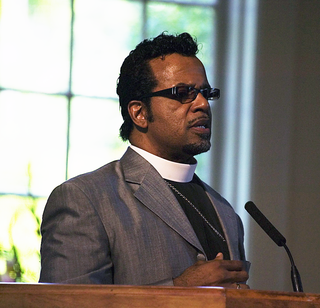A Quote by Rob Bell
[The Bible] has to be interpreted. And if it isn’t interpreted, then it can’t be put into action. So if we are serious about following God, then we have to interpret the Bible. It is not possible to simply do what the Bible says. We must first make decisions about what it means at this time, in this place, for these people.
Related Quotes
The ground we have in common with unbelievers is not the Bible, but our common needs, hurts, and interests as human beings. You cannot start with a text expecting the unchurched to be fascinated by it. You must first capture their attention, and then move them to the truth of God's Word. By starting with a topic that interests the unchurched and then showing what the Bible says about it, you can grab their attention, disarm prejudices, and create an interest in the Bible that wasn't there before.
The Christians and the Jews do not believe that the Bible is the verbatim words of God. In fact it is clear that the books of the Bible are written by men - allegedly inspired men - but humans nonetheless. God in the Bible is spoken of in third person. This gives the believer a degree of caution. If the writers of the Bible were humans and humans are fallible, the Bible should not be taken literally. It is possible to interpret it, use one's logic to understand it in the light of science and adapt its teachings to meet the needs of the time.
There are two views of interpreting the Bible in America: that every word is literally the truth without qualification, and then the other view is, it's called plenary inspiration, which holds that all religious truth taught in the Bible is true from God, but each word is not necessarily interpreted literally.
It's natural to be skeptical of a story like Noah. However, the greatest miracle in the Bible is not Noah and the flood. The greatest miracle in the Bible is recorded in the first verse: "In the beginning God created the heavens and the earth." If that miracle is true, then every miracle in the Bible is at least possible (including Noah's Ark). If God created the universe, then He can do whatever He wants inside it.
A church can wither as surely under the ministry of soulless Bible exposition as it can where no Bible is given. To be effective the preacher's message must be alive; it must alarm, arouse, challenge; it must be God's present voice to a particular people. Then, and not till then, is it the prophetic word and the man himself a prophet.
The approach we try to take here [Morris's Institute for Creation Research] is to assume that the word of God is the word of God and that God is able to say what He means and means what He says, and that's in the Bible and that is our basis. And then we interpret the scientific data within that framework.


































